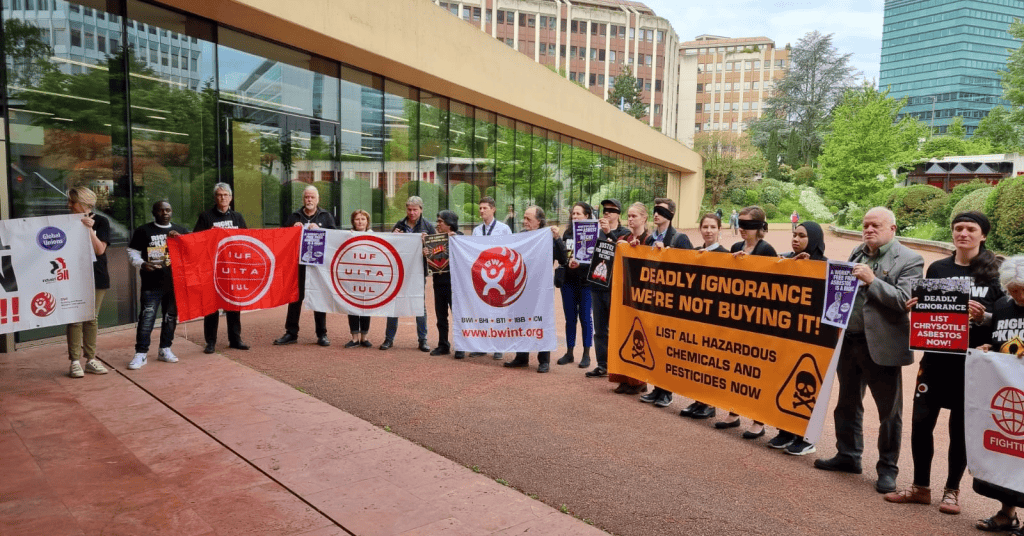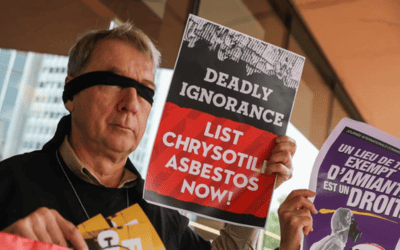In an important moment for the improved rights of small and low-income countries to control hazardous chemicals entering their countries, the Australian trade union-led global alliance of trade unions and non-governmental organisations contributed to a reform push to the Rotterdam Convention in May with 70% of countries supporting an amendment proposed (92 countries).
A proposal by Australia and Switzerland, co-sponsored by 12 other Parties across the world, aimed to prevent small numbers of Parties (mostly companies who sell chemicals) from blocking their listing on the Convention.
After two weeks of intense debate, heated argument and delay tactics on the floor of the convention, the amendment fell just short of the 75% needed to pass. Despite this, the Australian and Swiss governments made a great effort to lead this reform.
Since 2020, the Australian Council of Trade Unions with Union Aid Abroad-APHEDA support, has developed and facilitated a global alliance of trade unions and NGOs including the International Trade Union Confederation, Building and Woodworkers International, European Trade Union Confederation, global unions IndustriALL and the International Union of Foodworkers (IUF), NGOs across Europe and North America, as well as global NGOs campaigning on chemical hazards and toxics focusing on Latin America and Africa and ban asbestos networks.
At the convention, the minority of vocal Parties opposed to the Swiss/Australia amendment was led by Russia, China, USA, India, Brazil, Argentina and Saudi Arabia. The amendment received strong support from Parties in Europe, Africa, the Pacific and parts of Latin America.
Despite the nail-biting loss, the campaign pushed the change agenda at the Rotterdam Convention further than it has ever come and took the fight right up to those continuing to prop up the asbestos and hazardous pesticide industries. Those countries still want to sell hazardous chemicals to low-income countries without prior information on their toxicity or consent from the receiving country.
Both ACTU Assistant Secretary Liam O’Brien and Phillip Hazelton from Union Aid Abroad- APHEDA, attended the COP11 Meeting in Geneva along with a strong group of other Alliance members from global unions and NGOs from many other countries.


